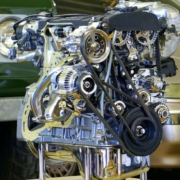Plug-in Performance Chips vs. Traditional Methods: A Head-to-Head Comparison
Car enthusiasts are constantly on the lookout for ways to squeeze more power and efficiency out of their vehicles. Traditionally, this involved tinkering with the engine itself. But recently, a new contender has entered the ring: plug-in performance chips. Let’s compare these chips to conventional methods to see which approach reigns supreme.
Traditional Engine Tuning: A Hands-On Approach
For decades, car enthusiasts have relied on traditional methods to boost their vehicles’ performance. This often meant getting their hands dirty with mechanical modifications. Swapping stock components like air intake systems, exhaust manifolds, or even entire turbochargers could significantly improve horsepower and torque. Additionally, ECU tuning involved reprogramming the Engine Control Unit (ECU), the car’s computer brain, to optimize air-fuel mixtures, spark timing, and other factors for better performance or fuel economy.

While these methods have proven effective, they come with challenges. Modifications often require a mechanic’s expertise, especially for ECU tuning, which can be expensive and time-consuming. Performance parts can also be quite pricey, especially for high-end upgrades. Finally, there’s the concern that modifications can potentially void your car’s warranty, leaving you responsible for any repairs.
Plug-in Performance Chips: A Promising Shortcut?
Plug-in performance chips have emerged as a new contender in the world of car performance. These chips are designed for easy installation, typically plugging into your car’s OBD-II diagnostic port. Proponents of these chips advertise increased horsepower and torque, improved fuel economy, and a simple plug-and-play installation process. This convenience and potential for improvement are certainly attractive to car enthusiasts.
However, it’s important to consider the limitations of this evolving technology. Performance chips don’t have universal compatibility, so ensuring a chip works with your specific car is crucial. Additionally, advertised performance and fuel economy gains can vary greatly, depending on the company, and independent testing is recommended to verify these claims. Finally, similar to traditional modifications, using performance chips might void your car’s warranty. It’s always best to check with your dealership before installation.
The Road Ahead: Choosing the Right Path
The ideal approach for boosting your car’s performance depends on your specific needs and budget. Traditional tuning methods offer proven results but require more expertise and resources. Plug-in performance chips provide a potentially easier option, but their effectiveness and compatibility can be uncertain.
As chip technology matures, we can expect wider availability, improved performance gains, and clearer compatibility information. However, traditional tuning will likely remain a valuable option for experienced car enthusiasts seeking the most significant power increases. Ultimately, the choice lies in whether you prefer a tried-and-true approach or are willing to explore the potential of this evolving technology.















Leave a Reply
Want to join the discussion?Feel free to contribute!